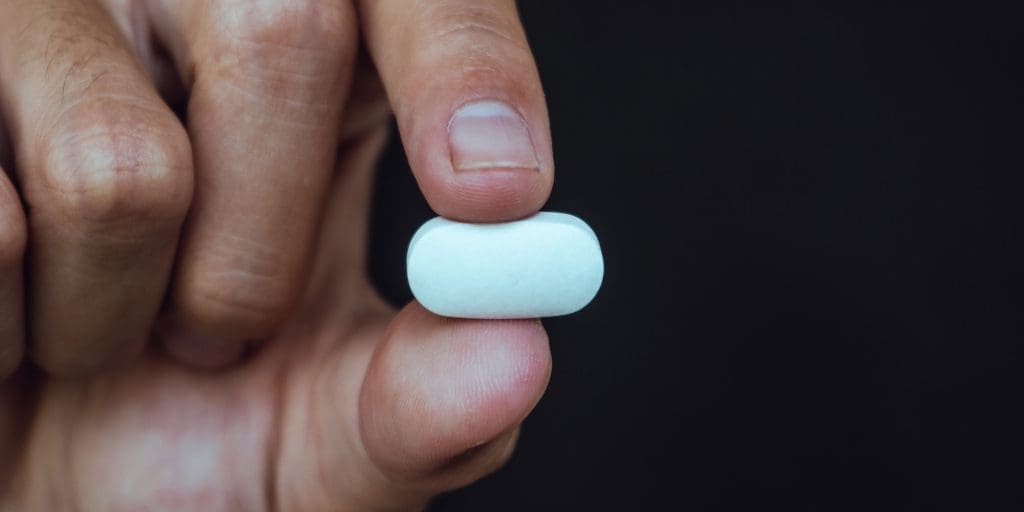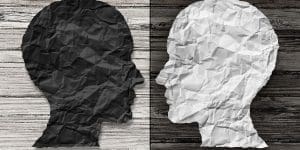Benzodiazepines (or “benzos”) stand among the most commonly prescribed medications for anxiety and insomnia. Unfortunately, they also double as being among the most difficult to stop using. Because of this, those looking to quit benzos should consider a medical detox. A medical benzo detox can help individuals cope with benzodiazepine withdrawal symptoms in a safe, monitored setting.
Whether someone enjoys the effects of benzos or wishes to avoid the discomforts of withdrawal, their continued use can evolve into a dangerous addiction. And it’s a growing issue; from 2019 to 2020, the number of benzo-related overdoses increased by almost 24 percent. As the abuse of such a widespread class of medications continues to grow, it becomes more important than ever to provide support for those looking to halt their benzo use.
Contents
What Is Benzodiazepine Withdrawal?

Benzodiazepine withdrawal occurs whenever someone suddenly stops taking benzos. Generally, this is because of a newfound drug dependence. The body comes to rely on benzos for the modulation of GABA (Gamma-Aminobutyric Acid), a neurotransmitter responsible for mood, stress, and sleep regulation. As a result, when someone attempts a benzo detox, the body struggles to process GABA adequately on its own.
Compared to other drugs, the period of time it takes for an individual to develop a benzo dependence is rather short. They may only have to take benzos for two to three weeks to experience withdrawal symptoms upon trying to quit. This makes benzo detox even more essential for those trying to quit these drugs.
Benzodiazepine withdrawal symptoms may include:
- Irritability
- Panic attacks
- Tremors
- Sweating
- Trouble concentrating
- Dry heaving
- Nausea
- Weight loss
- Heart palpitations
- Headache
- Muscle aches/stiffness
- Seizures
- Psychosis
Typically, benzos work best on a short-term, as-needed basis. Used this way, they can help soothe symptoms of acute episodes of anxiety and insomnia. However, short-acting benzodiazepines like these are also more addictive and easier to abuse than their longer-acting counterparts, which can create an immediate need for benzo detox.
The Rebound Effect
When someone stops taking a medication prescribed to treat anxiety or insomnia, they may experience a resurgence of those symptoms. In some cases, this spike of anxiety or poor sleep may even feel more severe than it did prior to taking medications.
Benzos ease symptoms of anxiety and insomnia, but they do not treat the underlying causes of either. Therefore, if someone stops using them while their source of stress is still present or without having sought additional treatment, they may fall down the same path as before.
Known as “the rebound effect,” or simply rebound anxiety and insomnia, such experiences exist as one of the unfortunate side effects of benzo detox. Furthermore, the added anxiety of detox is often responsible for making the rebound effect more intense than someone’s original symptoms.
Benzo Detox Treatment Programs
Due to the harsh withdrawal process, finding the right type of support for a safe benzo detox is crucial. Many feel intimidated by the potential side effects, but remember that anyone can successfully stop using benzos. It only requires knowing where to go for the proper environment, resources, and overall aid.
Benzo Detox at Home
Some individuals wonder about the possibility of undergoing a benzodiazepine detox at home. The comforts of their own living spaces can feel more inviting and safe than a clinical facility. However, ample reasons exist as to why someone should avoid detoxing alone.
Firstly, someone who attempts a benzo detox at home has a much higher chance of relapsing. Presumably, they still possess benzo medications. Thus, when they experience adverse withdrawal symptoms, the immediate availability of benzos may tempt them into breaking their detox to escape their discomfort.
Furthermore, the withdrawal symptoms in question can pose a threat to untrained, isolated individuals. While severe side effects like seizures are rare, their lethality depends on how quickly and effectively they are addressed when they do occur. Without a benzo detox program, someone could find themself in a life-threatening situation.
In other words, individuals are much safer in the care of medical professionals than they would be on their own. Licensed physicians know the warning signs of detox complications as well as how to prevent them from worsening to a truly dangerous extent.
Medical Detox

The safest method of detoxing from benzos involves a medically supervised program, such as the one offered at Port St. Lucie Hospital. Our medical benzo detox equips our patients with a plethora of benefits and advantages they can’t gain elsewhere.
Patients undergo detox in a comfortable, peaceful environment. Most importantly, they lose easy access to benzos. This eliminates the risk of immediate relapse and encourages patients to commit to the detox. In a tranquil setting such as ours, they can push aside any other worries as well and focus solely on recovery.
In addition, in the event that someone’s detox experiences poses a health risk, our team can ensure their safety. With trained doctors and nurses on 24/7 standby, any complications meet a swift and effective response.
For interested and eligible patients, our benzo detox program also offers medication-assisted treatment (MAT). Please note, though, that we will never force anyone to take supplementary medications against their will.
If someone wishes to undergo a gentler withdrawal process, we may prescribe a tapering dosage of Ativan. MAT allows the body to adjust to the absence of benzodiazepines in a gradual manner. In turn, this decreases the overall severity of withdrawal symptoms and makes them easier to manage.
What Happens After Benzo Detox?
For some, the journey to achieve long-term sobriety may not end with benzo detox. Should someone need additional support to overcome benzo addiction, they may explore further treatment programs, such as dual diagnosis treatment.
At Port St. Lucie Hospital, our dual diagnosis program serves individuals with co-occurring substance abuse problems and mental health conditions. These are especially common in those with benzo addictions, as benzos are often used to treat anxiety.
Anxiety can be a freestanding condition or a symptom of another mental illness. In either case, when it coexists with substance abuse, it can improve with dual diagnosis treatment.
Our dual diagnosis program consists of numerous evidence-based treatment options, such as:
- Psychiatric evaluation
- Individual therapy
- Group therapy
- Educational counseling for family members
- Supplemental therapies
- 12-step programming
- Medication management and education
- Relapse prevention
- Links to community resources (i.e. support groups)
Even if someone successfully stops using benzos for anxiety, the rebound effect and residual anxious feelings may make it difficult to remain sober. For this reason, it is vital to seek treatment for the root cause behind their benzo usage.
Dual diagnosis treatment accomplishes this by teaching patients about crucial life skills and healthy coping mechanisms. As they participate in a variety of therapeutic activities after benzo detox, patients learn how to manage their symptoms, communicate their needs, and regain control of their everyday lives.
Detox from Benzos at Port St. Lucie Hospital
The benzo detox program at Port St. Lucie Hospital prioritizes patient comfort and safety. Other treatment facilities may provide a secure place to detox but fail to offer medical assistance, or vice versa. At Port St. Lucie Hospital, however, we implement world-class care on every front.
Here, patients can fully immerse themselves in a peaceful setting and focus solely on self-improvement. They can enter detox with a calm and confident mindset, for they know their status is constantly monitored by a team of experienced medical professionals.
When you’re ready to undergo a medical benzo detox, call our admissions experts at (772) 335-0400 or submit a confidential contact form online. We can help you confront addiction or prolonged benzodiazepine usage today. With our support and wealth of resources, you can overcome any mental health challenge.


























